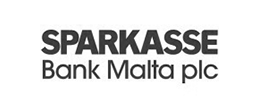Ecommerce during pandemic and why reconciliation matters
Covid 19 has presented both threats and opportunities to the ecommerce industry
As the pandemic spread, so did a joke – across social media:
Who drives the digital transformation efforts in your company?
A. CEO
B. CTO
C. CIO
D. COVID-19
It’s funny because it rings true.
Businesses around the world saw themselves amid an unprecedented situation as the pandemic hit. Lockdown restrictions and social isolation impacted heavily upon many industries, while others faced a sharp surge in demand. Notably, ecommerce yielded positives and had to rethink, redesign and quickly change the way it functions.
The challenges started with the huge volumes of transactions, but that just scratches the surface of how such a dramatic rise in demand can put stress on an organisation. In an industry with seemingly infinite payment methods, intermediaries and evolving customer preferences it can be a constant struggle to keep track of the financial side.
Online transactions surge during Covid has spurred finance transformation
The pandemic has changed the market landscape dramatically. The ecommerce space has witnessed overstocking bouts, resurgence of cashless transactions, preference for home delivery options, and increased rates of refund requests. These are outcomes of a new reality. Safety concerns and the repeated appeal for social distancing dismissed “the personal touch” in sales.
Meanwhile consumers need additional incentives to initiate a purchase – special discounts, a wider range of payment methods, a more tolerant return policy, readily available stock at all times and safe delivery options. This all means transactional output of a new magnitude and complexity. It rattles the retail segment but also presents itself as an opportunity to transform.
A black swan event like this requires consumer-focused businesses to act more decisively, be flexible and address issues that were postponed for too long. Prompt reporting feedback, supporting operations remotely without disrupting team collaboration, multiple layers of security and real time monitoring of financial health are now in focus. Above all, maximising returns while minimising costs has rarely been more important.
Now is exactly the time when digital transformation projects have to be accelerated so that the companies can build capabilities for financial control and transaction processing to stabilise revenue streams and cash management. This is not a crisis reaction but an adequate response to long term change in the environment.
Payments reconciliation is a mission critical process for ecommerce businesses
Ecommerce retail channels expand the global reach of the vendors, broaden the product categories ordered, as well as open up segments of potential clients who until recently preferred the traditional way of purchasing. Ecommerce is a textbook example of a heavily transactional business that takes a network of intermediaries to complete a sale. Every single online purchase becomes less and less straightforward.
Regardless of its value, it generates a transaction trace leading from the merchant to the customer and passing through a chain of service providers– payment operators (such as PayPal, Amex, etc), banks, logistics and delivery companies, partnering marketplaces. The various parties supporting the successful conclusion of a deal incur their fees for that matter. Eventually everyone should get their fair share for a job well done.
The reconciliation process is the check point to verify all of this by comparing the transaction records of each involved party. As an example – one of the most common reconciliation scenarios is a three-way matching between A) the payment processor, B) the bank, and C) the internal ERP systems (Oracle NetSuite, MS Dynamics, SAP, to name a few). The process is performed in two steps – processor-to-bank and processor-to-internal system, and the top three recurring challenges are transaction volume, matching complexity, and data integrity.
Timing delays pose another specific problem for merchants highlighted in the current situation. The reconciliation automation solution on a transactional basis is the tool to perform that repeated task in a timely, efficient, and structured manner. This is a business critical activity in consumer oriented, heavily transactional businesses with relatively short sale cycle and intricate distribution system.
Ecommerce can now leverage advanced transaction matching and account reconciliation capabilities
Double digit percentage spikes in transactions counts render manual matching and reconciliation impractical. It cannot be sustained by HR restructuring or creative formula manipulations in spreadsheets. Potential technical or human errors are multiplied by the sheer volume of online orders. Manual processing is slow, precarious, scattered in disparate systems, and virtually inapplicable in remote collaboration environments. Finance departments confined to home office can relate to that.
Overlooking low-value transaction inconsistencies because the time factor dictates to focus on investigating and resolving the higher priority ones blows up in the face of finance teams sticking to obsolete methods of reconciliation. Catching up on transactional matching and clearing requires a more sophisticated approach and a robust technology framework to bridge the gap between the company strategy and the fast pace of real life. If not, write offs pile up, revenue streams suffer, cash management gets out of hand due to slow reactions and self-imposed technological handicap.
The marketing strategies to rekindle customer engagement and retention add another layer of complexity for transaction processing teams. Voucher and gift card schemes, special discounts, return and refund concessions – all those instances contribute to the exceptions backlog in the reconciliation workflow. Consistent tracking and adequate management are neglected when the accounting folks are preoccupied with mundane repetitive tasks and lose sight of the bigger picture. Transaction aging patterns or recurring root causes for a mismatch are hard to be consolidated or reported on unless the appropriate automation controls are at place.
Automated reconciliations and process optimizations have positive effects on the very bottom line
It has never been more evident that deferred investment in a reconciliation solution affects the very bottom line in the retail/ecommerce company’s financial statement. Data reconciliation at the transactional level has been overlooked for some time and does not exist in most ERPs. Automated daily transactional reconciliation via a dedicated full scope reconciliation platform guarantees that ecommerce companies collect their revenues in a predictable and timely manner. As a risk mitigation tool it spots fee billing errors, brings financial positions under daily control, and prevents cash crunches. Ultimately, this results in significant positive effect on a company’s bottom line.
A special ReconArt feature first published on Bobsguide – the ultimate fintech resource, an innovative online platform that connects the providers of fintech solutions with the financial services professionals who need them.
Read the article here as well.

 follow our blog
follow our blog





















